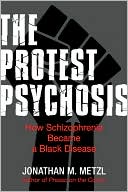Category Books
- Fiction Books & Literature
- Graphic Novels
- Horror
- Mystery & Crime
- Poetry
- Romance Books
- Science Fiction & Fantasy
- Thrillers
- Westerns
- Ages 0-2
- Ages 3-5
- Ages 6-8
- Ages 9-12
- Teens
- Children's Books
- African Americans
- Antiques & Collectibles
- Art, Architecture & Photography
- Bibles & Bible Studies
- Biography
- Business Books
- Christianity
- Computer Books & Technology Books
- Cookbooks, Food & Wine
- Crafts & Hobbies Books
- Education & Teaching
- Engineering
- Entertainment
- Foreign Languages
- Game Books
- Gay & Lesbian
- Health Books, Diet & Fitness Books
- History
- Home & Garden
- Humor Books
- Judaism & Judaica
- Law
- Medical Books
- New Age & Spirituality
- Nonfiction
- Parenting & Family
- Pets
- Philosophy
- Political Books & Current Events Books
- Psychology & Psychotherapy
- Reference
- Religion Books
- Science & Nature
- Self Improvement
- Sex & Relationships
- Social Sciences
- Sports & Adventure
- Study Guides & Test Prep
- Travel
- True Crime
- Weddings
- Women's Studies
The Protest Psychosis: How Schizophrenia Became a Black Disease »

Authors: Jonathan M. Metzl
ISBN-13: 9780807085929, ISBN-10: 0807085928
Format: Hardcover
Publisher: Beacon
Date Published: January 2010
Edition: (Non-applicable)
Author Biography: Jonathan M. Metzl
Jonathan M. Metzl is associate professor of psychiatry and women’s studies and director of the Culture, Health, and Medicine Program at the University of Michigan. A 2008 Guggenheim award recipient, Metzl has written extensively for medical, psychiatry, and popular publications. His books include Prozac on the Couch and Difference and Identity in Medicine. He lives in Ann Arbor, Michigan.
Book Synopsis
Revolution was in the air in the 1960s. Civil rights protests demanded attention on the airwaves and in the streets. Anger gave way to revolt, and revolt provided the elusive promise of actual change. But a very different civil rights history evolved at the Ionia State Hospital for the Criminally Insane in Ionia, Michigan. Here, far from the national glare of sit-ins, boycotts, or riots, African American men suddenly appeared in the asylum’s previously white, locked wards. Some of these men came to the attention of the state after participating in civil rights demonstrations, while others were sent by the military, the penal system, or the police. Though many of the men hailed from Detroit, ambulances and paddy wagons brought men from other urban centers as well. Once at Ionia, psychiatrists classified these men under a single diagnosis: schizophrenia.
In The Protest Psychosis, psychiatrist and cultural critic Jonathan Metzl tells the shocking story of how schizophrenia became the diagnostic term overwhelmingly applied to African American men at the Ionia State Hospital, and how events at Ionia mirrored national conversations that increasingly linked blackness, madness, and civil rights. Expertly sifting through a vast array of cultural documents—from scientific literature, to music lyrics, to riveting, tragic hospital charts—Metzl shows how associations between schizophrenia and blackness emerged during the 1960s and 1970s in ways that directly reflected national political events. As he demonstrates, far from resulting from the racist intentions of individual doctors or the symptoms of specific patients, racialized schizophrenia grew from a much wider set of cultural shifts that defined the thoughts, actions, and even the politics of black men as being inherently insane.
Ultimately, The Protest Psychosis provides a cautionary tale of how anxieties about race continue to impact doctor-patient interactions, even during our current, seemingly post-race era of genetics, pharmacokinetics, and brain scans.
Publishers Weekly
Metzl, a psychiatrist and Univ. of Michigan professor, uses the largely unknown story of Michigan's Ionia Mental Hospital to track the evolving definition of schizophrenia from the 1920s to the '70s, from an illness of "pastoral, feminine neurosis into one of urban, male psychosis" correlated with aggression. Metzl puts the imperfect science of diagnosis in historical context with admirable lucidity, moving into the present to examine how a tangle of medical errors and systemic racism that labels "threats to authority as mental illness" influences the diagnosis of black men with schizophrenia. He offers a laudably complex look at a complex and still poorly understood condition, expanding his discussion to include the impact of deinstitutionalization and the revision of the Diagnostic and Statistical Manual of Mental Disorders (DSM-II) in the 1960s. The result is a sophisticated analysis of the mechanisms of racism in the mental health system and, by extension, the criminal justice system.
Copyright © Reed Business Information, a division of Reed Elsevier Inc. All rights reserved.
Table of Contents
Subjects
 African American - General & Miscellaneous
African American - General & Miscellaneous  General & Miscellaneous
General & MiscellaneousNonfiction
 Psychology
Psychology  Psychological Disorders
Psychological DisordersNonfiction
 Psychology
Psychology  Psychology - Theory, History & Research
Psychology - Theory, History & ResearchNonfiction
 Social Sciences
Social Sciences  Gender Studies
Gender StudiesNonfiction
 Social Sciences
Social Sciences  Sociology
SociologyNonfiction
 Sociology
Sociology  Sociology - General & Miscellaneous
Sociology - General & MiscellaneousPsychology & Psychotherapy
 Psychology - Theory, History & Research
Psychology - Theory, History & Research  Psychology - History
Psychology - HistoryScience & Nature
 Social Sciences
Social Sciences  Gender Studies
Gender StudiesScience & Nature
 Social Sciences
Social Sciences  Sociology
SociologySocial Sciences
 Gender Studies
Gender Studies  Men's Studies
Men's StudiesSocial Sciences
 Sociology
Sociology  Sociology - General & Miscellaneous
Sociology - General & MiscellaneousMedical Books
 Psychology & Psychotherapy
Psychology & Psychotherapy  Psychology - Theory, History & Research
Psychology - Theory, History & Research
